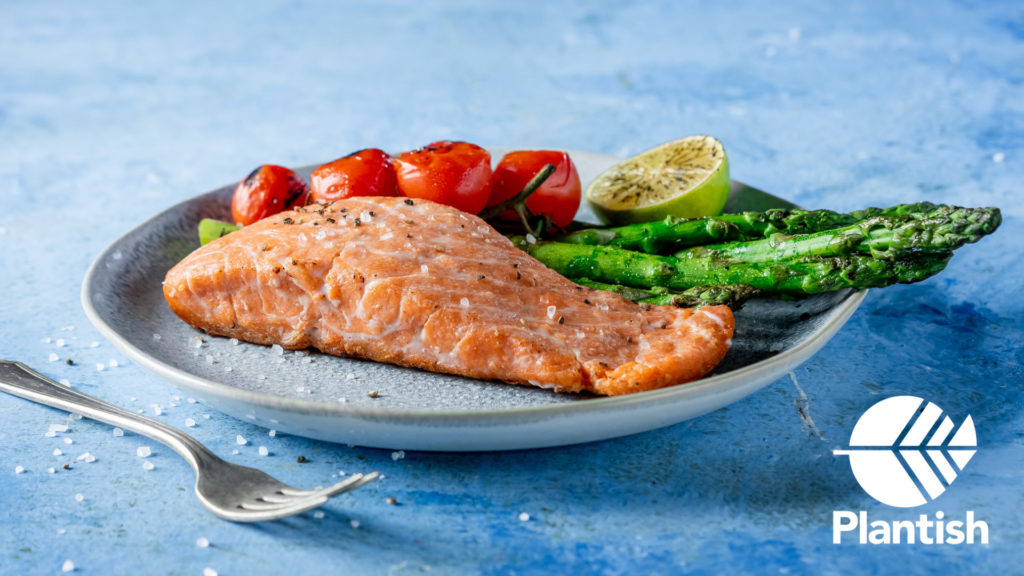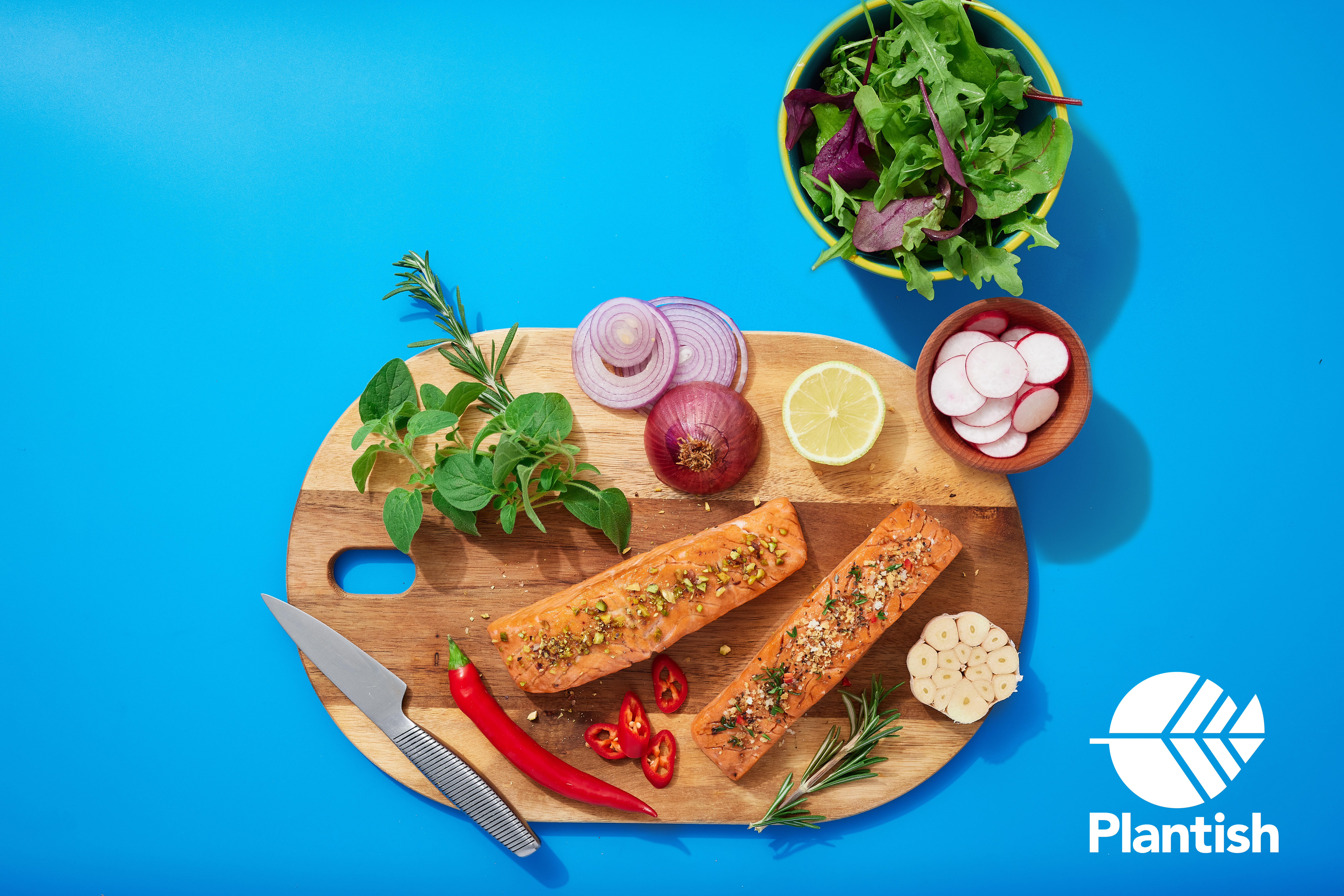Plantish Nets $12.45 Million, Alt Seafood’s Largest Seed To Scale Ultra-Realistic Salmon
4 Mins Read
Israel’s Plantish has announced the completion of a record-breaking seed round. The plant-based seafood developer scooped $12.45 million, one month after showcasing its hyper-realistic fish analogue across social media channels, which the company claimed was the world’s first vegan whole cut salmon fillet. The round was led by State of Mind Ventures, with Pitango, TechAviv Founder Partners and SmartAgro participating, amongst others. The record-breaking seed round comes after Plantish secured $2 million last summer, in a pre-seed raise.
Founded in 2021, Plantish is a fresh face in the alt-seafood category. It has garnered global attention thanks to its ultra-realistic salmon fillets made using plant proteins. The company says it wants to replace conventional fish on consumer plates, which is why it is choosing to focus on whole-cut analogues.

The future of fish
Plantish claims that it has nailed more than the aesthetic of real salmon. The company says it has replicated the taste, texture, and nutrition, using all plant-based ingredients. “We’ve already seen it happen in the meat market, now it’s the time for fish,” Ofek Ron, CEO and co-founder said in a statement. “in particular salmon, which accounts for $50 billion in the half a trillion dollar seafood market. The problem has been that fish is so difficult to replicate, until now.”
According the company, more than 70 percent of all fish eaten globally is consumed in whole-cut form—a format that is far more challenging to replicate from plants than say a breaded fish finder. To make a bigger impact and reduce reliance on caught seafood, Plantish has developed plant-protein whole-cuts, with a variety of layers for authenticity.
R&D into conventional salmon was exhaustive, to break the food down into its constituent parts. From there, plant alternatives were devised for connective tissue and muscle tissue. Plantish’s patent-pending manufacturing technology allows the layers to be applied one at a time for an ultra-realistic end result. The process is reportedly cost-effective and eminently scalable, making it a viable option for foodservice and retail channels. Initial distribution is expected through restaurant partners.
Addressing a need for fishless fish
Plantish cites a poll conducted by Sprouts Farmers Market that claims more than half of Americans aged 24-39 identify as flexitarians. The same demographic is proactive in sourcing alternatives to conventional meat and seafood. Ron claims that Plantish will meet that need. “We love fish and are not trying to change what consumers want,” Ron said in a statement. “We are just offering a delicious upgrade to salmon that is safer for you and better for the planet. No antibiotics, no hormones, no mercury, no bycatch, and no compromise.”
The Plantish salmon can be prepared, cooked, and served in the same ways as conventional fish. The company is now looking to scale up from prototype to production. The seed funding will support key developments such as team expansion and extensive R&D to prove the product concept. From there, the company predicts smooth sailing into foodservice channels initially, within the next two years.
“Cracking whole-cut seafood is the next big opportunity in our quest for impact and sustainability,” Merav Rotem Naaman, general partner at State Of Mind Ventures said in a statement. “When we met the world-class team at Plantish, we knew that they had the passion, vision and capability to pull off the seemingly impossible task of producing a true upgrade to fish”.

Swimming upstream
Tuna and salmon are racing to the front of the ‘must-develop’ queue with various players looking to perfect whole-cut alternatives made from plant protein. Dutch brand Vivera debuted its own salmon fillet, earlier this month. The company claims it has mimicked the flavour, fattiness and flakiness of conventional salmon while coming in at a price below what it retails for.
In the tuna sphere, Current Foods, Impact Food and Finless Foods are all looking to tempt whole-cut fans to the plant side. The latter recently closed a $34 million Series B funding round to help with the construction of a specialist production facility.
All photos by Plantish.





